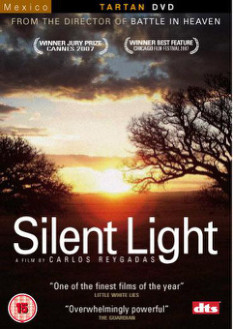In my humble opinion, nonprofits are broken - structurally. When a person joins the board of directors of a nonprofit, it should be done for a couple reasons: 1) A true passion for the organization's mission and, 2) The belief that you can help further organization's mission by helping it get the resources it needs to achieve its goals. If a person joins the board of an organization for any other reason, it does the organization a disservice.
I also think it's important to note that it's not the job of the board of directors to manage the organization - that is the hired staff's responsibility. The job of the board is to provide the organization with fiduciary oversight. Fiduciary oversight (a legal term) basically consists of two parts: initially creating a budget and then monitoring how effective and appropriate the year’s budget has been executed, in the best interests of a third party. According to Idea.org, a go to site for nonprofits, they describe the role of a board of directors as the following:
The role of a non-profit board member is comprised of only three activities:
- Fundraising (80 percent): Fundraising is the most important responsibility of a board member, yet many board members are reluctant to engage in this activity. Board members are expected use their connections to spur interest in and support of the organization they serve. Board fundraising activities may include major donor solicitations, sponsorship solicitations, membership recruitment, and efforts to boost event registrations.
- Oversight of Programs (10 percent): The non-profit board is responsible for general oversight of the organization’s programs. This role does not extend to the operations behind the programs, but does include fiduciary oversight.
- Strategic Planning (10 percent): The board is the primary force behind the organization’s strategic planning decisions. Board members create or update the strategic plan and evaluate the implementation plan presented by staff.
For the past several months now, our relationship with the board of directors has grown strained. Our board does not consider itself a "fund-raising board," even though that is the board we need. Instead, our board wants to be involved in the daily management decisions and wants to actively participate in creative endeavors. This is not the role of the board - this is the role of the staff. This is creating the burnout and high stress levels. I honestly feel that this will be my last festival and that makes me sad. I have loved being part of the transformation of the Atlanta Film Festival. However, I feel that, due to the state of the board of directors, we have reached a glass ceiling and cannot bust through. Learning how to deal with this is difficult. It reminds me of dealing with my son - he has SOOOO much potential (he's very smart) but he completely wastes his days away with nonsense and will not achieve his true potential. I see the potential the Atlanta Film Festival holds and it's so damn frustrating knowing that it probably won't achieve its full potential due to its own board. For a driven person, having to live in that type of an environment is just cruel and brutal.
So, I've been pretty depressed lately and have been trying to figure out where to go from here. I feel so lost because I had so much optimism going into this job and now I just feel defeated and deflated. I cannot live in mediocrity and I cannot lower my standards for success because I feel doing so does everyone, including me, a disservice. Sometimes I wish I could - sometimes I wish I could be one of those people who doesn't really care about things and can disengage. I think it'd be much easier to deal with and I might be a happier person. I'm not wired that way, though.
I read something today that I think quaintly explains why I can't give up, give in, or disengage. My friend posted an MLK Jr. quote, in honor of today's holiday. It reads: " Our lives begin to end the day we become silent about things that matter." Martin Luther King, Jr. Unfortunately, if I'm doing something, it's because it matters.
